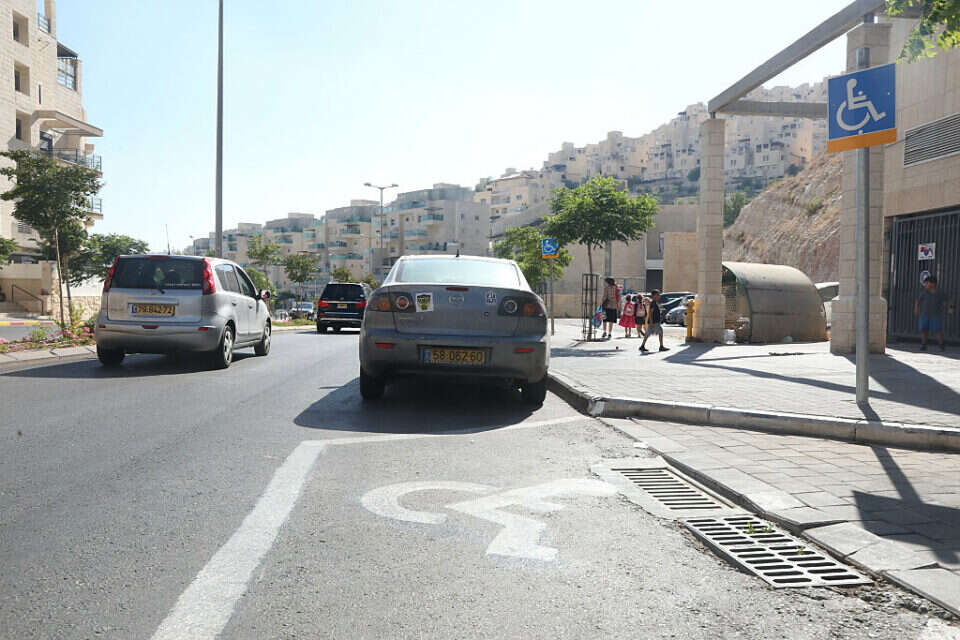The parking plight gave birth to a wonderful natural phenomenon, unique in the entire world: one after another, parking signs popped up on the street like mushrooms after the rain, teaching that the nearby piece of street is intended for parking a specific car whose owner has a "handicapped ticket".
The observer of the street near my house, which is strewn with blue signs along its entire length, might think for a moment that "all of Israel are disabled to each other".
The attitude towards people with disabilities has undergone a welcome change in recent years.
Along with society's increased sensitivity to their needs, sincere efforts were made to make it easier for them by various means and to make the public space accessible to them, so that they could live their lives with maximum independence, without needing assistance.
This blessed phenomenon has been misused, and an examination of its scope shows that it has no equal in the Western world.
Data presented to the subcommittee for urban accessibility in the Knesset, show that in recent years there has been a major inflation in the number of disability cards issued in Israel.
In 2022, the number of citizens with a disabled badge increased to approximately 268,000 people, a rate of change of approximately 262% compared to 2006, and 122% compared to 2012.
Various relaxations in the threshold conditions have turned the disabled badge into an object of desire for the average Israeli.
Anyone who manages to "arrange" for himself such a tag benefits not only from the possibility to park free of charge in Blue and White, but also in places where parking is prohibited, such as on sidewalks and near crosswalks.
A study conducted at the Knesset's Research and Information Center shows that according to Ministry of Transportation data, in the past year there were 405,722 vehicles with a disabled badge registered in Israel, of which 378,431 vehicles (93.3%) had a regular (green) badge, and 27,291 vehicles (6.7%) had a wheelchair badge wheels (blue).
It is no coincidence that the number of vehicles with a disabled tag is about 1.5 times greater than the number of people registered as having the tag at the licensing office, because the law allows two vehicles to be associated with one tag.
The proportion of citizens with a disabled badge in Jerusalem is the highest - 23,266 (8.7%) and 36,370 vehicles with a badge (9.0%), followed by Tel Aviv, with 14,460 (5.4%) citizens with a badge and 21,964 vehicles (5.4%).
The main sufferers of this phenomenon are two: honest citizens who are not ready to participate in this fraudulent "celebration", and who, due to the large number of parking lots marked as designated for disabled people, are unable to find a parking space near their home;
and people with real disabilities, who are required to park in public places.
The large number of license holders results in the fact that more than once, these parking spaces are occupied by people who do not really need them, and the person with the real disability is denied access to these places altogether.
And all this - we have not yet talked about the despicable phenomenon of parking a normal car in a handicapped parking lot.
It turns out that according to the existing law, the police do not have the authority to enforce the law in disabled parking lots located in private areas and public institutions.
Furthermore: according to the existing law, there is no legal obligation imposed on a local authority to allocate a certain quota for disabled parking, and this is subject to its discretion.
Action must be taken to correct this legal situation as soon as possible.
At the same time, proposals that have been proposed in the past should be adopted - such as the allocation of a "technologically disabled ticket", for example, which will allow its use only when the disabled person himself is traveling in a car.
were we wrong
We will fix it!
If you found an error in the article, we would appreciate it if you shared it with us

